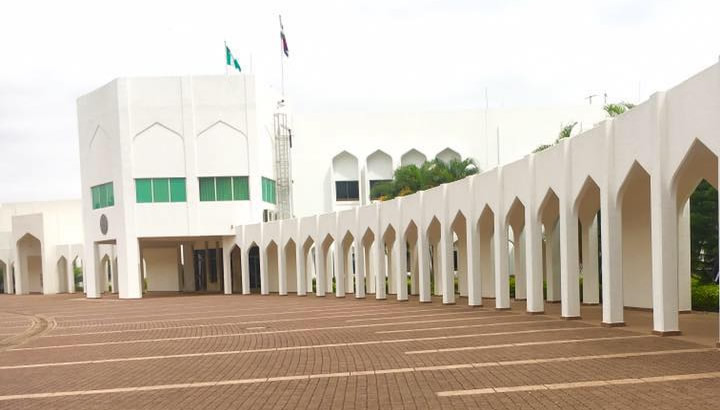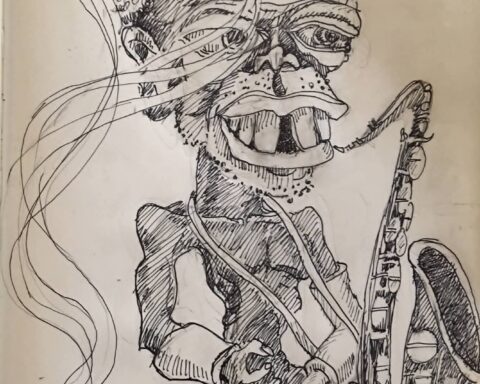Historians warn that history repeats itself, first as tragedy, then as horror. Rome once had Caligula. Today, Nigeria has Tinubu. The names change, but the abuse of power remains, reminding us that unchecked authority and impunity inevitably breed waste, corruption, and suffering.
Caligula was a cultish emperor surrounded by worshipers. He elevated loyalists whose only qualification was obedience, and they told him only what he wished to hear. The Roman Senate, stripped of dignity, bowed in flattery, reinforcing his delusions and enabling his descent into tyranny and cruelty.
He turned power into theater: hosting lavish feasts, launching vanity projects, and ruling with an arrogance that masked cruelty. Rome’s treasury became his private purse, drained even as citizens went hungry. Inside the Domus Tiberiana, his imperial palace on the Palatine Hill, courtiers drowned him in praise; outside its gates, Rome bled.
To magnify his image, Caligula demanded temples and sacrifices in his honor, casting himself as a living god while his empire collapsed under the weight of his extravagance, wastefulness, and the resentment it bred among subjects and senators alike.
Tinubu’s imperial Nigeria stands as a grim parallel.
Aso Rock has become our own Domus Tiberiana, gleaming with imperial splendor even as Nigerians wait in endless fuel lines they cannot afford and struggle to buy food priced far beyond their reach. Within the palace and across the nation, praise singers chant Tinubu’s name, tribal loyalists excuse his failures, and the National Assembly wallows in sycophancy, pledging allegiance not to the republic but to the man who presides over its decline.
Meanwhile, our emperor parades in armored limousine convoys, lifts off in private helicopters, and soars through the skies in a custom-designed multimillion-dollar luxury jet, a flying palace fit for an emperor. All this unfolds while millions of Nigerians sink deeper into poverty, starve daily, and wonder where their next meal will come from. And the tragedy is that these excesses are paid for by loans that mortgage the nation’s future and shackle generations yet unborn.
In true Caligula fashion, under Tinubu’s watch, billions have vanished into vanity projects destined for abandonment, and into schemes driven more by patronage and political bargaining than by genuine public necessity or national interest. Corruption festers, empathy withers, and our long-suffering people are left to bear the crushing cost of his indulgence.
Like Caligula, Tinubu confuses power with entitlement, loyalty with governance, arrogance with authority, and extravagance with vision. The consequence is impunity and national decline, leaving our people crushed by hunger, despair, and untimely death. And like Caligula, he rules with cold indifference, unmoved by the horrendous consequences his failed policies and inaction inflict on millions of impoverished families.
The mockery continues in governance itself. Caligula once appointed his horse to the Senate, a calculated insult meant to expose the gluttony and idleness of Rome’s political class. In our time, under Tinubu, the parallel is unmistakable. Key offices are filled not with the competent or the visionary, but with loyalists and patrons—men and women whose chief qualification is proximity to power and service to his ego.
These appointments are less about serving the nation than about rewarding allegiance and tightening control. In this way, governance descends into a grotesque farce, where our institutions are weakened, merit is scorned, and our people are left to endure the consequences of decisions born of vanity and political convenience rather than of duty to our common good.
One wonders if horses might, in fact, serve the nation better than many of Tinubu’s appointees and even his National Assembly. A horse, after all, would not bray incompetence as Senate leadership, nor trot out servility as the stewardship of our Federal Capital. In their place, the absurdity of Caligula lives on, except in our case, the horse might actually be an improvement.
There is another similarity: the cruelty of indifference unites both rulers. Caligula staged banquets that mocked the hunger outside Rome’s gates. He feasted on delicacies served in dishes of gold, drank wine from jewel-encrusted goblets, and demanded pearls dissolved in vinegar to flaunt his wealth. He tossed coins into the crowd, not to ease their poverty, but to revel in their desperate scramble, turning suffering into entertainment.
Tinubu presides over his own version of this cruelty. At Aso Rock, insiders recount dinners with imported wines, multi-course meals, and the clatter of silver cutlery against fine china. Lawmakers and loyalists toast the emperor, while beyond the gates Nigerians queue for bread, scrape together money for school fees, and watch their children go without medicine. The Tinubu administration, meanwhile, sprinkles meager palliatives across millions, knowing they fall far short of need. The contrast is stark: opulence and indulgence in Aso Rock, hunger in the mean streets of Nigeria.
And while the feasts continue, the empire burns. Roman citizens endured famine and neglect; Nigerians endure starvation, blackouts, soaring prices, and a currency that collapses daily. Schools have no roofs, hospitals no doctors, communities and farms no security. Yet from Aso Rock, the emperor promises ‘renewed hope.’ At least that is more than Caligula ever offered Rome, which he left in abject hopelessness.
But history is merciless. Caligula believed himself untouchable, adored by guards and flattered by sycophants, until even his protectors grew weary of his cruelty, impunity, and tyranny. It was not rebellion from the masses that ended him, but betrayal from within: his own Praetorian Guard cut him down when his madness became unbearable. His fall came from the very circle that once sustained him.
Today, Tinubu faces a similar threat. Former allies across the nation are turning against him. Party loyalists are quietly defecting, dissent is brewing even within his tribal and religious strongholds, and the Southeasterners he has long scorned grow ever more alienated by his policies and rhetoric.
Above all, he must tread carefully with turncoats like Wike and Akpabio, as even his own ministers grow restless, watching which way the wind blows, according to people familiar with the inner workings of his government who spoke on condition of anonymity.
Like Caligula, Tinubu may learn that the real peril lies not with the masses but among the very hands that lifted him to power. No one is calling for violence, but history teaches a hard truth: rulers who govern with arrogance and indifference eventually lose the loyalty of those closest to them.
So, my fellow Nigerians, the question is not whether a Caligula rules in Aso Rock, but how long we will endure his reign before the curtain falls on him or on us. The year 2027 is not just another election; it is a reckoning, a chance to break free from the cycle of arrogance, excess, and neglect under Tinubu. It is the moment we must summon the courage to choose a new president and, with that choice, chart a different path that restores dignity to our people, justice to our nation, and hope to our future. Tinubu does not define us. We hold the power to define ourselves.
About the Author*
_Nnaoke Ufere is a leading voice in African public thought and policy. He writes a weekly opinion column for the African Mind Journal, where his work shapes national conversations on leadership, governance, and reform. He is the author of *Covenant With Nigerians: Reversing Our Country’s Decline*. Nnaoke graduated from the University of Nigeria, Nsukka with a first class honors degree in Electrical/Electronic Engineering in 1981. A Harvard alumnus and PhD holder in Strategic Management from Case Western Reserve University, Ufere is an influential author, public intellectual, and global development analyst whose insights on U.S.-Africa relations and institutional accountability continue to challenge the status quo and inspire change.
Follow us on all social media platforms @dailyquery for news and analyses around the globe.



























